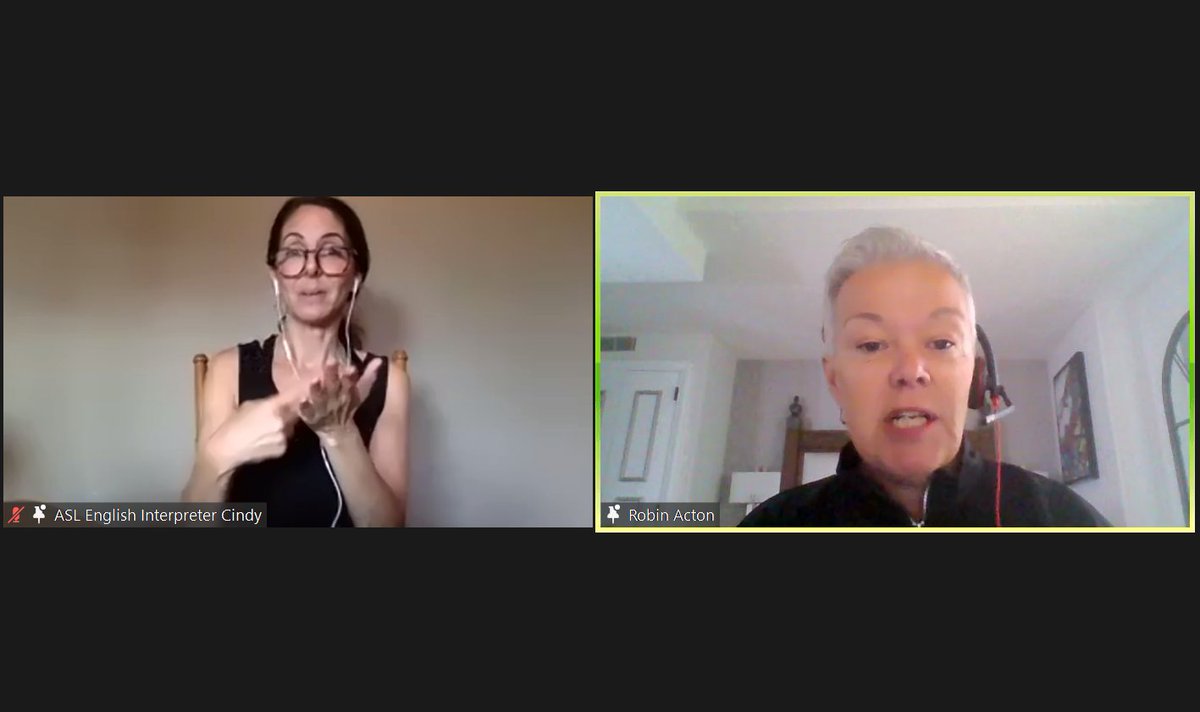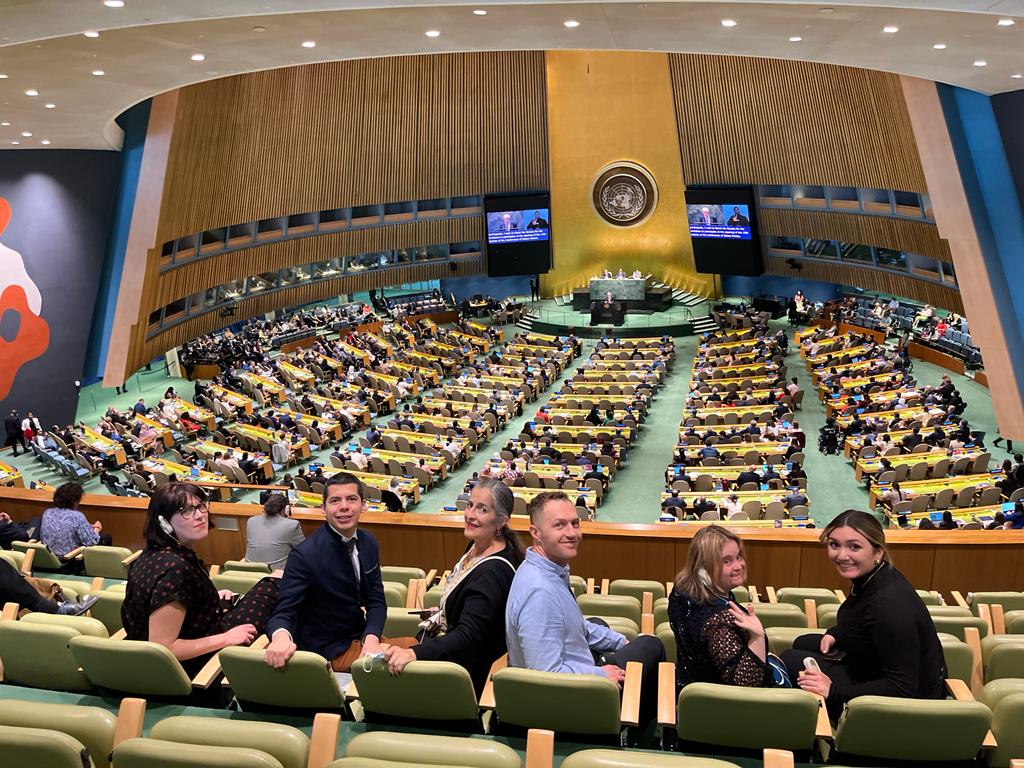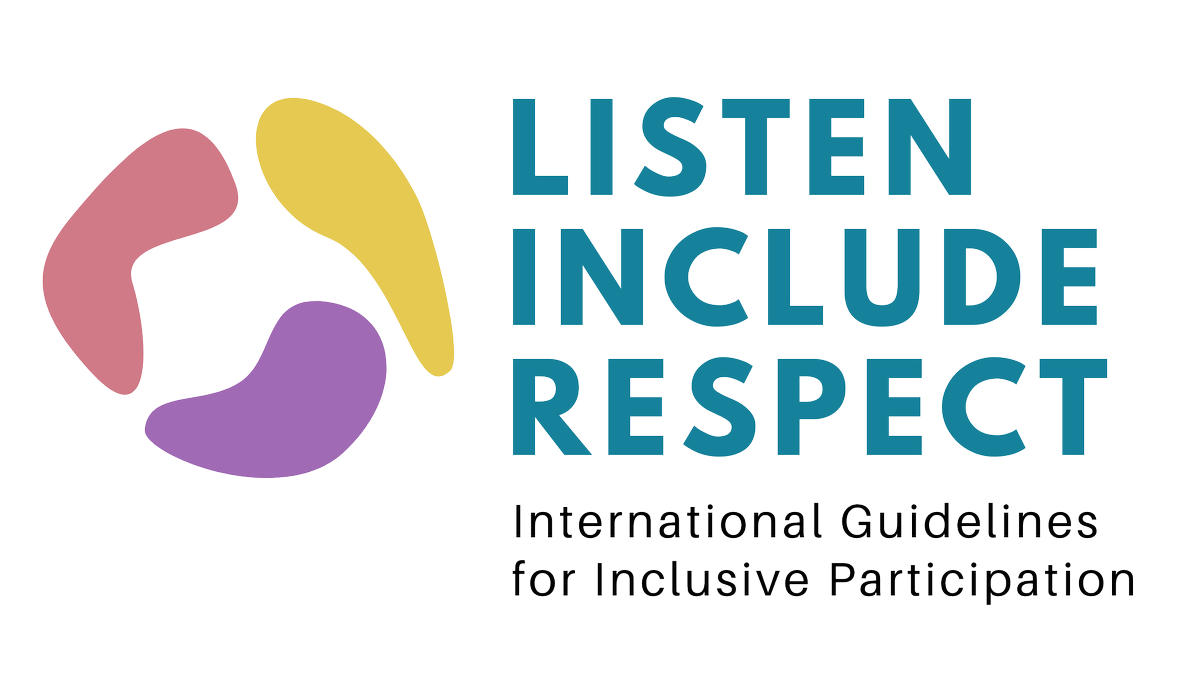
🔴 We're LIVE! Join @InclusionCA and @InclusionIntl to discuss the expansion of medical assistance in dying/#euthanasia in #Canada.
We'll be live-tweeting the session and sharing key points from the discussion here, follow this thread to catch the conversation!
👇
We'll be live-tweeting the session and sharing key points from the discussion here, follow this thread to catch the conversation!
👇
https://twitter.com/InclusionCA/status/1537429183542054913
During the COVID-19 pandemic, #Canada legalized a pathway to euthanasia for people who are not terminally ill, provided they have a disability or disabling medical condition.
In practice, people with disabilities are dying because they live in poverty, can’t secure affordable adequate housing, and are avoiding #institutionalization.
In 2023, people with a mental illness / psychiatric disability will also be eligible for #euthanasia.
Disability advocates and DPOs are working in a coalition to challenge the law, arguing that it is the antithesis of disability inclusion and participation...
"While #Canada legalized medical assistance in dying for people who are terminally ill in 2016, the law was amended in 2021 to allow for people with disabilities who are not terminally ill to be euthanized." @Acton5, President of @InclusionCA 

"As a #mother and a spouse of persons with significant disabilities, I am not only alarmed, but genuinely fearful of the impact of this legislation on the lives of people I love." @Acton5, President of @InclusionCA
"We want to warn other countries of our experience.
I implore you to listen to our presenters and heed our warning about the dangers of medical assistance in dying legislation, so what has happened in our country does not become the blueprint for what may happen in yours."@Acton5
I implore you to listen to our presenters and heed our warning about the dangers of medical assistance in dying legislation, so what has happened in our country does not become the blueprint for what may happen in yours."@Acton5
.@CatherineFrazee, Disability Activist, Opening Remarks: "Right now in #Canada, disability rights defenders are actively battling a fire. We cannot extinguish it. Our top court and our elected leaders have seen to that. But we are working around the clock to contain it." 

.@CatherineFrazee, Disability Activist: "We've all fought fires before, but this fire is different. This fire wraps itself in the language of rights, #autonomy and choice. This fire stalks those of us who are at our weakest moments."[...] 

[...] "This fire systematically chokes out the life force that sustains us. That desire to live and fight another day. This fire threatens to rob us of tomorrow's leaders and elders by nomalizing death as the expected response to the struggles of our #disabledlives."
"Our urgent call today to the global #humanrights community is not ideological, nor is it religious[...]
it is also rooted in the real politics of our times, a candid assessment of where disabled minds rank in global and domestic social policy." @CatherineFrazee
it is also rooted in the real politics of our times, a candid assessment of where disabled minds rank in global and domestic social policy." @CatherineFrazee
.@KristaCarrNB of @InclusionCA " People are calling and e-mailing our offices warning us every day that it's easier to #die by maid than to get the #support that they so desperately need. And that dying isn't off the table." 

.@KristaCarrNB "Rosina Camus said we have a culture of #killing instead of caring. Sophia said she applied for MAiD because of abject poverty and to escape her apartment which she called a dungeon. They have died because they felt they had no other option."
"The least we can do is warn you. Don't let your countries model their laws on #Canada. It's a glaring violation of the #CRPD" @KristaCarrNB of @InclusionCA
"We now live in a country where life with a #disability is literally framed as a life worse than #death. The stigma, the ableism, it's pervasive." @KristaCarrNB of @InclusionCA
.Kerri Joffe, @ARCHDisability Lawyer: People must have free choice when deciding whether to apply for medical assistance in dying. However, in #Canada, many people with disabilities do not have free choice. Chair choices are severely constrained by ableism and inequalities." 

.Kerri Joffe, @ARCHDisability Lawyer: "Everyone must be free to choose, especially when it comes to deeply personal decisions about life and death. Canada's law appears to offer freedom to choose MAiD, but, in fact, there is no freedom of choice for many disabled people." 

.Kerri Joffe, @ARCHDisability Lawyer: "Instead, they are pressured into medical assistance in dying by social and economic #inequality, a lack of real alternatives to live with dignity in the community, or a lack of medical services."
"The government has made it easier for disabled people to kill themselves than it is to survive. And I've seen this throughout my entire life. And as someone who's currently not on social assistance, it is still a struggle." @SarahJama_, Self-advocate 

.Rohini Peris of @aseqehaq: "Like many disabled people in #Canada, people with MCS report systemic social and economic inequality. They often live below the poverty line and are isolated and stigmatized." 

.Rohini Peris of @aseqehaq: "In many of these cases, people do not want to #die, they just cannot find any real options to live safely and in health in the #community." 

.Rohini Peris of @aseqehaq details individual cases of government neglect resulting in death: "When people are backed into a corner living in #poverty for years on end, it doesn't feel like a choice anymore[...]"
.Rohini Peris of @aseqehaq "Instead of putting in place healthy housing and adequate income supports, #Canada has created a law that allows #disabled people to die because they are suffering due to inequality and barriers contributing to #inaccessibility."
Gabrielle Peters @mssinenomine, @DisabilityFili1: "The proponents of Canada's assisted suicide argue that the state should not impede anyone's right to choose to die. There are three deliberate falsehoods in their assertion."
Gabrielle Peters @mssinenomine, @DisabilityFili1: "1) MAiD is a negative freedom. Meaning that the state agree not to interfere in a person ending of their own life. In truth, maid is a positive freedom. The state is providing death as a solution."
Gabrielle Peters @mssinenomine, @DisabilityFili1: "2) The claim that MAiD exists within a framework of real choice. Canada's universal health care system is in fact not universal. The #ableist bias extends to how it is practiced and delivered."
Gabrielle Peters @mssinenomine, @DisabilityFili1: "3) MAiD, for those not near end of life, is not available to just anyone. It is available solely to disabled people.
#Ableism is embedded in Canada's history and has been institutionalized into every aspect of our society."
#Ableism is embedded in Canada's history and has been institutionalized into every aspect of our society."
Alberto Vasquez @halberto1980, Human rights lawyer: "No one can question someone's personal experience of illness and disability, but I think as a society we have a to share responsibility for the impact the media can have on the disability community." 

Alberto Vasquez @halberto1980: "People with disabilities in general are invisible and often treated as a burden. Life with dignity is unfulfilled. It will be naïve to think that these factors do not have an impact on the criteria for assisted dying" 

Alberto Vasquez @halberto1980: "How much basis there to exercise freedom when society constantly oppresses you and reminds you that your life is worth less than others?"
"What's the point of dealing with the symptoms of inequality if you're not dealing with the root cause?
We perceive that the root cause was this #invisibility and discounting of the humanity of persons with disabilities." Professor Gerard Quinn, @SR_Disability #COSP15
We perceive that the root cause was this #invisibility and discounting of the humanity of persons with disabilities." Professor Gerard Quinn, @SR_Disability #COSP15

"The problem is that for people with disabilities, the choice is weighed down considerably by accumulated #disadvantages [...] It's nonsense to talk about a free, open, uncoerced choice if you're not addressing supports, services, health and housing system" @SR_Disability 

.@CatherineFrazee, Closing: "Only a person who is not encumbered in life from fully exercising the range of choices that they desire (by virtue of their race, indigeneity, gender, gender preference, finances or disability) will speak of autonomy as a justification for death." 

[...] "For the rest of us, we don't have that kind of privileged autonomy". @CatherineFrazee, Disability Activist.
Thank you to everyone who spoke, engaged or participated in our #COSP15 side session today - your support is invaluable. @SR_Disability, @KristaCarrNB, @InclusionCA, @ARCHDisability, @aseqehaq, @mssinenomine, @DisabilityFili1 and @halberto1980.
Recording available soon.
Recording available soon.
• • •
Missing some Tweet in this thread? You can try to
force a refresh








